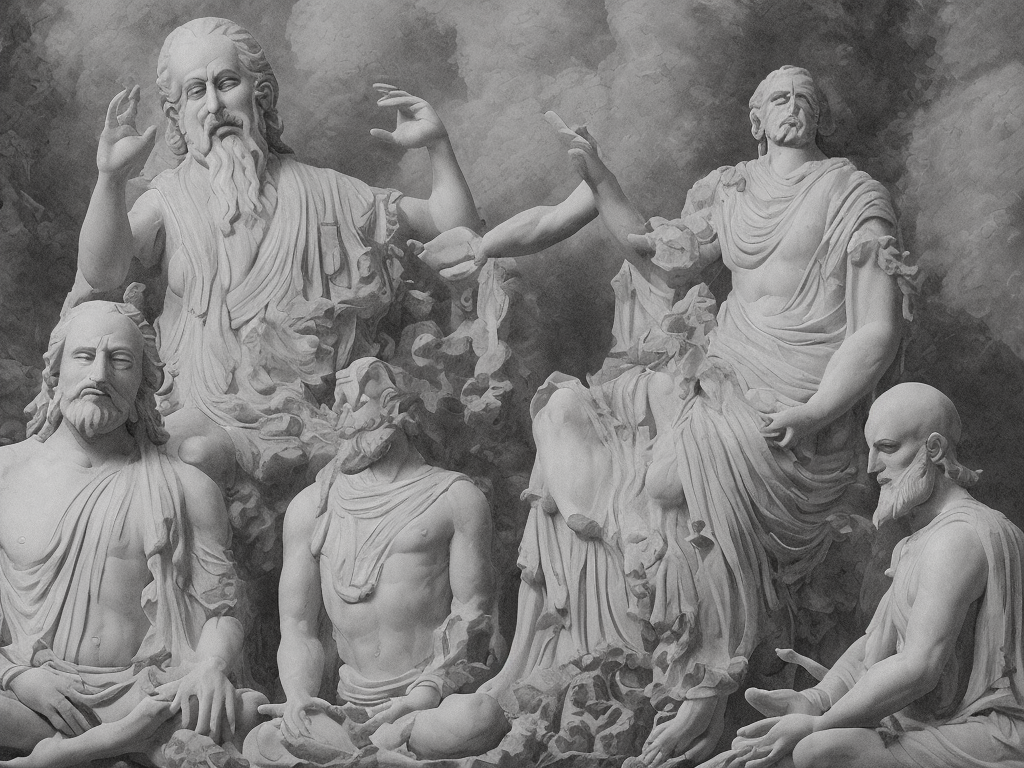
The terms 'guru' and 'teacher' are often used interchangeably in modern society. However, there are subtle differences between these two roles that are worth exploring. In this article, we will delve into the distinction between a guru and a teacher, examining their origins, functions, and characteristics.
The word 'guru' originated in ancient India and is derived from the Sanskrit word 'gurukula,' which means 'teacher's family.' In the traditional Indian system, a guru was more than just a teacher; they were considered spiritual guides or mentors who guided their students towards self-realization and spiritual growth. A guru was someone who had attained enlightenment or self-realization and was capable of leading others on the same path.
On the other hand, a teacher is someone who imparts knowledge and skills to their students. The role of a teacher is primarily focused on providing education, training, and guidance in specific subjects or areas of expertise. Teachers can be found in various settings, such as schools, universities, training centers, and even online platforms.
One key difference between a guru and a teacher lies in their approach and intention. A guru's primary intention is to awaken the student's spiritual consciousness and guide them towards self-realization. They strive to instill wisdom, compassion, and spiritual awareness in their disciples. In contrast, a teacher's primary focus is on imparting knowledge and skills related to a particular subject or field.
Another distinction between a guru and a teacher lies in the relationship they have with their students. In the traditional guru-disciple relationship, the bond between the guru and the disciple is deeply personalized and intimate. It is built on trust, reverence, and an understanding that the guru possesses higher knowledge and wisdom to guide the disciple's spiritual journey. This relationship is often lifelong and extends beyond the boundaries of the classroom or structured educational setting.
In the case of a teacher, the relationship with the students is more formal and professional. The teacher-student dynamic is based on the exchange of knowledge and skills within the context of a specific subject or curriculum. While respect and admiration may exist, the relationship does not usually extend beyond the educational environment.
The qualifications and preparation required to become a guru or a teacher also differ. In the traditional Indian system, a guru was chosen based on their own spiritual awakening and mastery. They were expected to have gone through rigorous spiritual practices, attained self-realization, and embodied the qualities they sought to impart to their disciples.
In contrast, becoming a teacher usually entails obtaining a formal education, such as a degree or certification, in a particular subject or field of study. While expertise and experience are valued, the emphasis is primarily on possessing the knowledge and skills necessary to teach effectively.
There is also a difference in the expectation placed on a guru and a teacher by their respective students. In the guru-disciple relationship, the disciple often looks to the guru for spiritual guidance, personal transformation, and emotional support. The disciple has a deep trust in the guru's wisdom and follows their teachings without question. The guru is seen as a spiritual authority, and the disciple surrender themselves to the guru's guidance.
In the case of a teacher, the expectations are more limited to the subject or field of study being taught. Students rely on the teacher for knowledge, instruction, and evaluation, but the teacher does not typically play a role in the personal and spiritual growth of the students beyond the academic realm.
It is important to note that while the differences between a guru and a teacher are evident, there can be overlap or blurred lines between these roles. In some spiritual traditions, a teacher may also embody qualities of a guru by imparting not only knowledge but also spiritual guidance. Conversely, a guru may also teach specific subjects or skills to their disciples as part of their spiritual training.
In conclusion, the difference between a guru and a teacher lies in their intention, approach, relationship with students, qualifications, and expectations. A guru focuses on spiritual awakening and personal transformation, whereas a teacher primarily imparts knowledge and skills in a specific subject or field. The guru-disciple relationship is deeply personalized and lifelong, while the teacher-student relationship is more formal and transient. Nonetheless, these roles can intertwine in certain contexts, blurring the distinctions between them.
 Self-Instruct
Self-Instruct